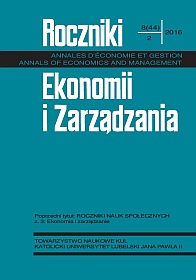The individual’s right to knowledge in the system of human rights
Abstract
Freedom of research is essential in order to enable scientific research. It can be defined as a right to knowledge. Most often the right to knowledge is equated with the right to education, understood as the practice of science or education, or wrongly, as the right to public information. Despite the fact that freedom of research appears in the provisions of national and international law, the same right to knowledge has not been explicitly formulated. However, it should be considered a basic human right, although derived from other individual rights. The right to knowledge includes three areas: freedom of research, the right to disseminate research results, the right of access to these research results.
References
Aczel A.D.: Wielkie twierdzenie Fermata. Rozwiązanie zagadki starego matematycznego problemu, tłum. P. Strzelecki, Warszawa: Prószyński i S-ka 1998.
Bierzanek R., Symonides J.: Prawo międzynarodowe publiczne, Warszawa: LexisNexis 2005.
Dobra praktyka badań naukowych. Rekomendacje, opr. Zespół Etyki w Nauce przy Ministrze Nauki, 25 maj 2004, http://www.uwm.edu.pl/doktoranci/files/dobra_praktyka.pdf
Łuczak M.: Prawo do wiedzy, „Wprost” 2001, https://www.wprost.pl/9873/Prawo-do-wiedzy
Schabas W.A.: Canada and the Adoption of the Universal Declaration of Human Rights, “Mcgill Law Journal / Revue de Droit de Mcgill” 1998, vol. 43, pp. 403-441.
Uniwersalny słownik języka polskiego, red. S. Dubisz, t. V, Warszawa: PWN 2003.
Copyright (c) 2016 Roczniki Ekonomii i Zarządzania

This work is licensed under a Creative Commons Attribution-NonCommercial-NoDerivatives 4.0 International License.


